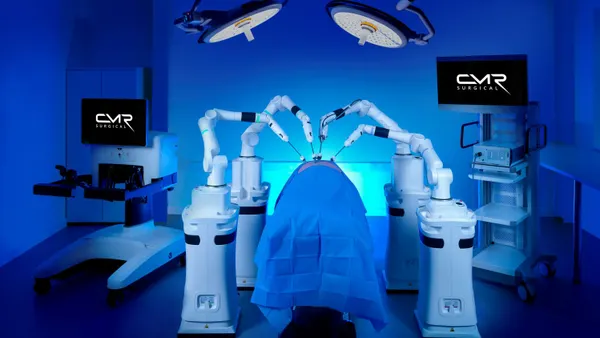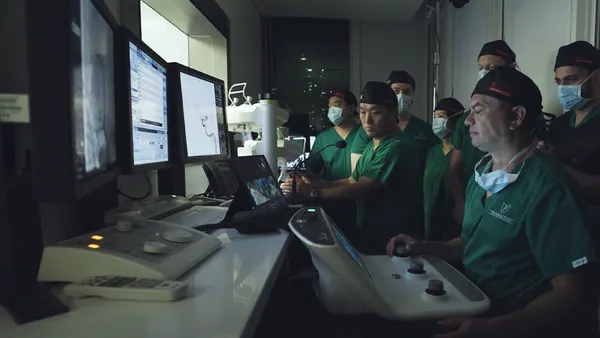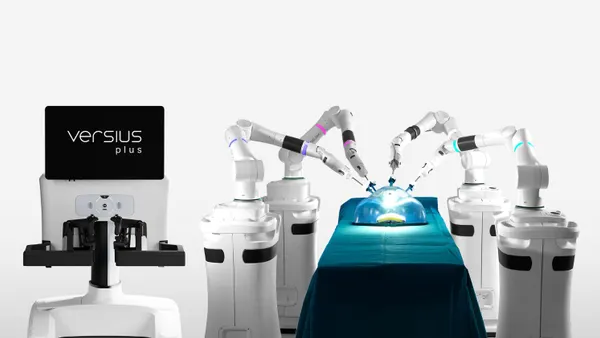Dive Brief:
-
FDA has given breakthrough device status to software Fresenius Medical Care is developing to improve the management of fluids during hemodialysis.
-
The software works with Fresenius' hemodialysis machines that track hematocrit and other biomarkers to provide recommendations on the rate of fluid removal.
-
Fresenius hopes the software will cut cases of fluid overload and fluid depletion and thereby prevent complications associated with hemodialysis, such as cardiovascular events.
Dive Insight:
The dangers of under and over-hydrating hemodialysis patients are well documented. A 2017 analysis of around 40,000 patients linked over-hydration to a 62% excess risk for mortality.
"Effective fluid management is critical to creating the best hemodialysis treatment possible for each individual," Mark Costanzo, president of the Renal Therapies Group at Fresenius Medical Care North America, said in a statement.
Other studies have identified relative blood volume monitoring (RBV-M) as a way to improve fluid management and thereby cut the rate of complications. One study linked the use of Fresenius' Crit-Line monitors in RBV-M to a decreased rate of hospital admissions in the first 90 days of dialysis. Another study associated certain RBV ranges with improved survival.
Fresenius' computer-assisted ultrafiltration control software is designed to help keep patients in the target RBV ranges. The experimental software analyses data gathered by Fresenius' CLiC device. CLiC is used with Fresenius' hemodialysis equipment to non-invasively measure hematocrit and other key biomarkers in real time.
Currently, the data collected by CLiC are used by healthcare professionals to determine whether the rate at which fluid is removed from the blood needs to increase or decrease. The goal is to remove as much fluid as possible without causing complications associated with under-hydration.
There is evidence that the current setup is failing to consistently optimize fluid management, though. Versions of Crit-Line have been available in the U.S. for more than 20 years. Data collected by the United States Renal Data System show the mortality rate of hemodialysis patients has fallen over that time, but people still suffer complications and are hospitalized due to fluid management issues.
The breakthrough status positions Fresenius to receive FDA support as it advances software intended to improve the situation. Fresenius is yet to commit to a timeline for development, stating that the rate of progress is "uncertain given the nature of developing this complex and innovative technology."











